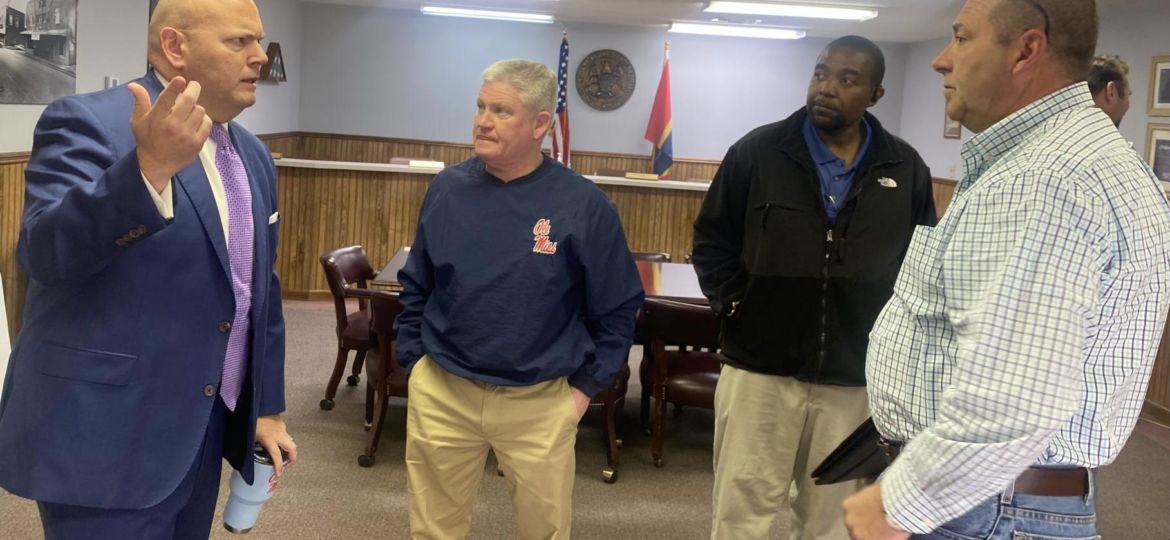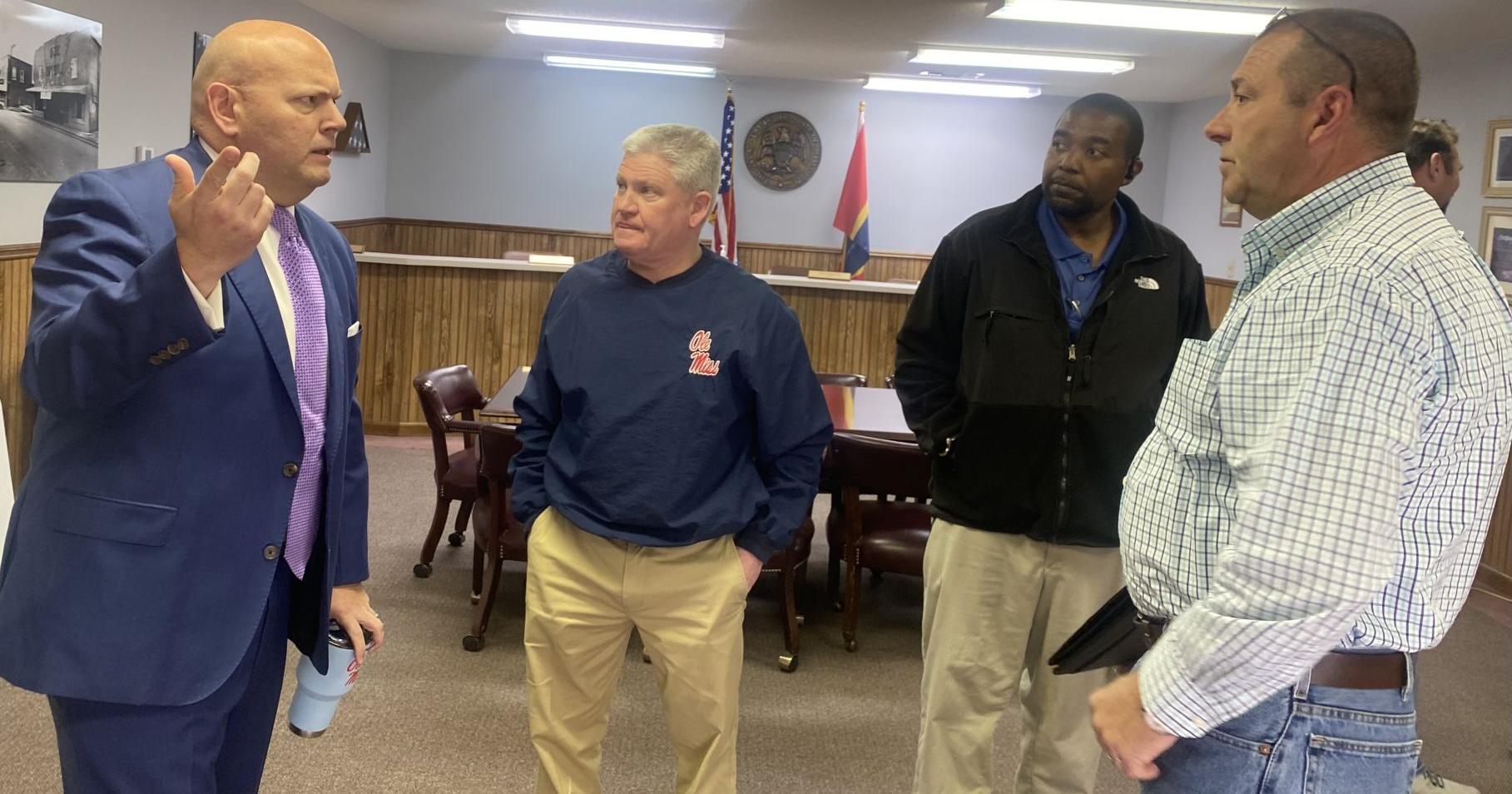

The Ripley City Council held a special meeting today at 8 a.m. in the board room of City Hall to vote on whether or not the city would opt out of Section 30 of Senate Bill 2095, the Mississippi Medical Cannabis Act. All board members were present. Also present were Mayor Jon Grisham, Price Elliott, board attorney, Frank G. Gay III, Joel Bennett, Joe Morton, and John Leland Braddock.
Ripley resident, Frank G. Gay, III addressed the council once the meeting was called to order by Mayor Grisham.
“Our daughter, Bella, had chronic neurological Lyme disease. She could have died from it…we spent hundreds of thousands of dollars trying to get her treated…one saving grace was cannabis oil,” Gay explained. “We truly believe that it changed her life. Today, she is a junior in college, did the mural on the side of the library and interns at Ripley Main Street.”
Gay continued, “I am as conservative as the next person and being from the South, I understand our deep religious roots that make up our moral compass. My question is, is it really moral to not provide additional jobs, revenue, infrastructure, and opportunity to the citizens of Ripley?”
“I’m here to provide perspective on the growth piece. Growth spurs growth. As new jobs and industry come to a town, other economic forces come into play and additional industry sweeps in to support the needs. I look at other towns and think about Radiator Springs from Disney Cars. It’s a forgotten town that dies. Green Day sings about ‘The Boulevard of Broken Dreams.’ When I drive through (some other towns), that’s my first thought. When I drive through Ripley, I see progress in the square: restaurants, bars, boutiques, many businesses that can’t operate in big cities without being pushed out.”
Gay then praised the council for the progress made.
“I understand and appreciate the constituency. Shame on the (County board of) Supervisors for keeping us in the 1950’s- the population is around the same today as it was in the 1950’s. We can be better. We can double in size. Tax revenues created by the industry would benefit Ripley. By bringing in additional industry, it creates additional opportunities for our citizens, as other businesses will want to be a part of Ripley. It’s a win-win.”
“We have a choice to progress or stay exactly where we are. I am scared for the next generation if we don’t choose progress. I don’t know if Ripley can continue to survive or will ultimately become the next Radiator Springs.”
There are different parts of the bill, for which each jurisdiction can either opt in or out of. The city council unanimously voted to opt out of the cultivation and processing of medical cannabis.
“The cultivation and processing facilities must be in agricultural or industrial zoned areas which could possibly impact residential areas,” attorney Price Elliott explained, on behalf of the Board.
“Once there is a better understanding on that, we will look into opting in on it,” said Ripley Mayor Jon Grisham.
The Board voted unanimously to opt in on dispensaries, research, and testing. The meeting was adjourned after the vote.
The Ripley City Council’s vote to opt in on certain aspects of the bill is in contrast to the Tippah County Board of Supervisors’ vote back on February 15, which was unanimous to opt out.
SB 2095, which goes into effect immediately, lists twenty medical conditions and categories of conditions for which an individual would be eligible for a medical marijuana card in Mississippi, including cancer, Crohn’s disease, post-traumatic stress disorder, any “chronic, terminal, or debilitating” condition producing chronic pain, and “any other condition” that may be added by the Mississippi Department of Health in the future, and makes clear that it prohibits “smoking medical [marijuana] in a public place or in a motor vehicle.” Medical Cannabis will be sold in dispensaries licensed and regulated by the Department of Revenue. Pharmacies cannot dispense it.
Jurisdictions have 90 days to opt out (the deadline is around May 2). Opting out happens at the municipal or county level, depending on where the facility is located. Citizens of jurisdictions that opt out can gather signatures (1,500 or 20%, whichever is less) to place an “opt in” on the ballot. If the opt-in vote fails, they have to wait two years to try again. Once it is voted in, it is in for good.
The unanimous opt out vote by the Tippah County Board of Supervisors was voted upon well in advance of the 90 day deadline to do so, in spite of Tippah County’s voting numbers for the referendum on medical cannabis on the 2020 ballot, indicating 4997 voters were for it, 4176 voters against it. The town of Walnut’s board also recently followed suit and voted to opt out.
“The fact that the Ripley City Council is willing to keep the conversation going is progress,” Gay commented.

